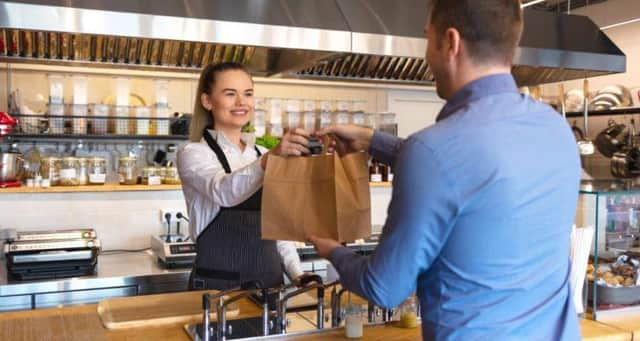Decline in restaurant spend 'three times deeper' than last financial crisis


Weekly spend in UK food service in April 2020 was just over £200 million, compared to April 2019’s weekly spend level of around £1 billion.
The report from NPD Group found that although lockdown officially started on 23 March, many people were already avoiding eating out, meaning that by the end of the first quarter of 2020, which runs to the end of March, there was already a 10 per cent year-on-year deterioration in "out of home" eating. This decline accelerated dramatically in April and for the two-month period of March and April, the fall was 54 per cent.
Advertisement
Hide AdAdvertisement
Hide AdWhile restaurants were forced to close their doors to diners as the Coronavirus crisis took hold, many launched takeaway services to compensate for lost earnings.
Dominic Allport, insights director of food service at the The NPD Group, said: “The scale of the crash in out-of-home foodservice visits is unprecedented and the 80 per cent fall in spend underlines the severity of the collapse. As we start to come out of lockdown, consumers are likely to be sensitive to prices and value for money.
“Value-related visits should increase rapidly in the same way as the 2008-2010 financial crisis when price-driven or voucher-driven visits rose sharply. We also expect deal-based visits to increase as they did in the financial crisis: they grew by over a quarter even though the overall market registered a 2 per cent visit decline.”
The study found that like during the last financial crisis, when restaurants and cafes were forced to innovate to bring back customers, deal-based offer such as vouchers enjoyed a resurgence in a bid to tempt back those diners not afraid to eat out or get takeaway, with deals reaching record levels in April.
More than 28 per cent of visits were influenced by whether an outlet could offer a good price, the highest percentage ever seen in the month of April, including during the financial crisis. Visits made using a meal deal were also the highest ever seen for any April, at 32 per cent, and the average bill on deal was 5 per cent higher than average.
Mr Allport added: “The importance of meal deals is likely to grow as operators fight for market share. Operators are now more savvy about these deals, and they know that consumers that buy on ‘value’ can often spend more if the product range and offering is right. However, it’s important to sound a note of caution. While reopening and initial recovery is imminent, and the relaxation of social distancing is welcome, the eating-out industry has a huge task ahead if it is to return to anything like normal trading. The good news is this is an extremely innovative and creative sector, and we know it will adapt fast to create the ‘new normal’.”
A message from the Editor:
Thank you for reading this story on our website. While I have your attention, I also have an important request to make of you.
The dramatic events of 2020 are having a major impact on many of our advertisers - and consequently the revenue we receive. We are now more reliant than ever on you taking out a digital subscription to support our journalism.
Advertisement
Hide AdAdvertisement
Hide AdSubscribe to scotsman.com and enjoy unlimited access to Scottish news and information online and on our app. Visit https://www.scotsman.com/subscriptions now to sign up.
By supporting us, we are able to support you in providing trusted, fact-checked content for this website.
Joy Yates
Editorial Director